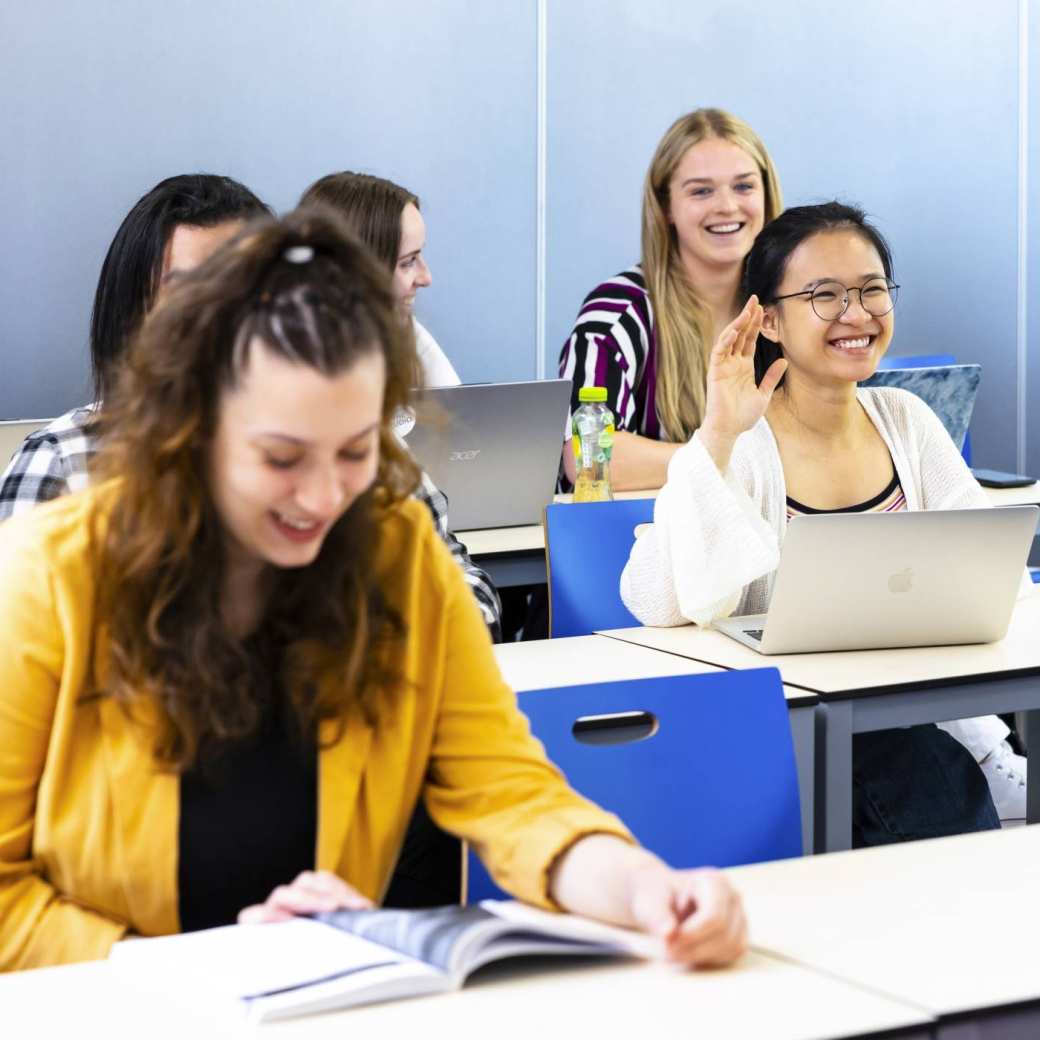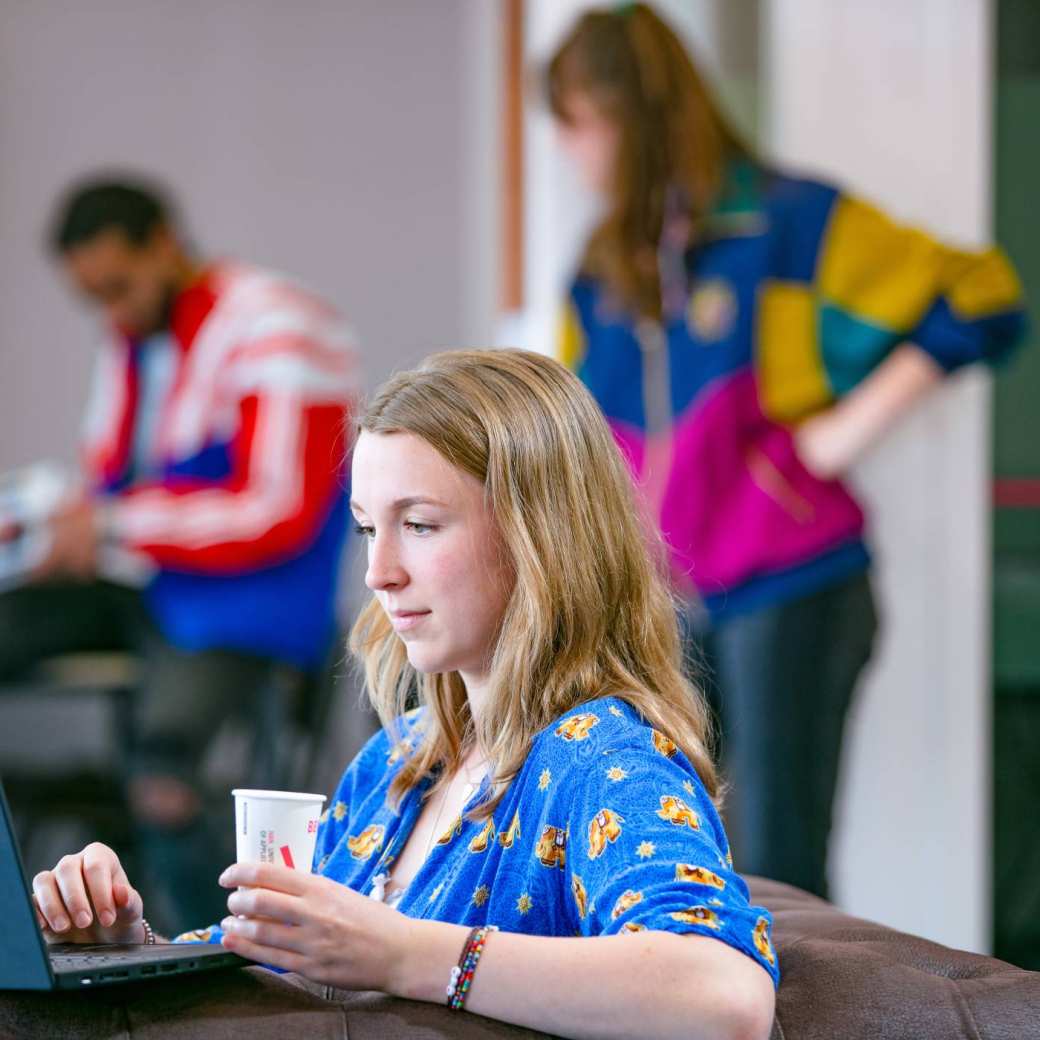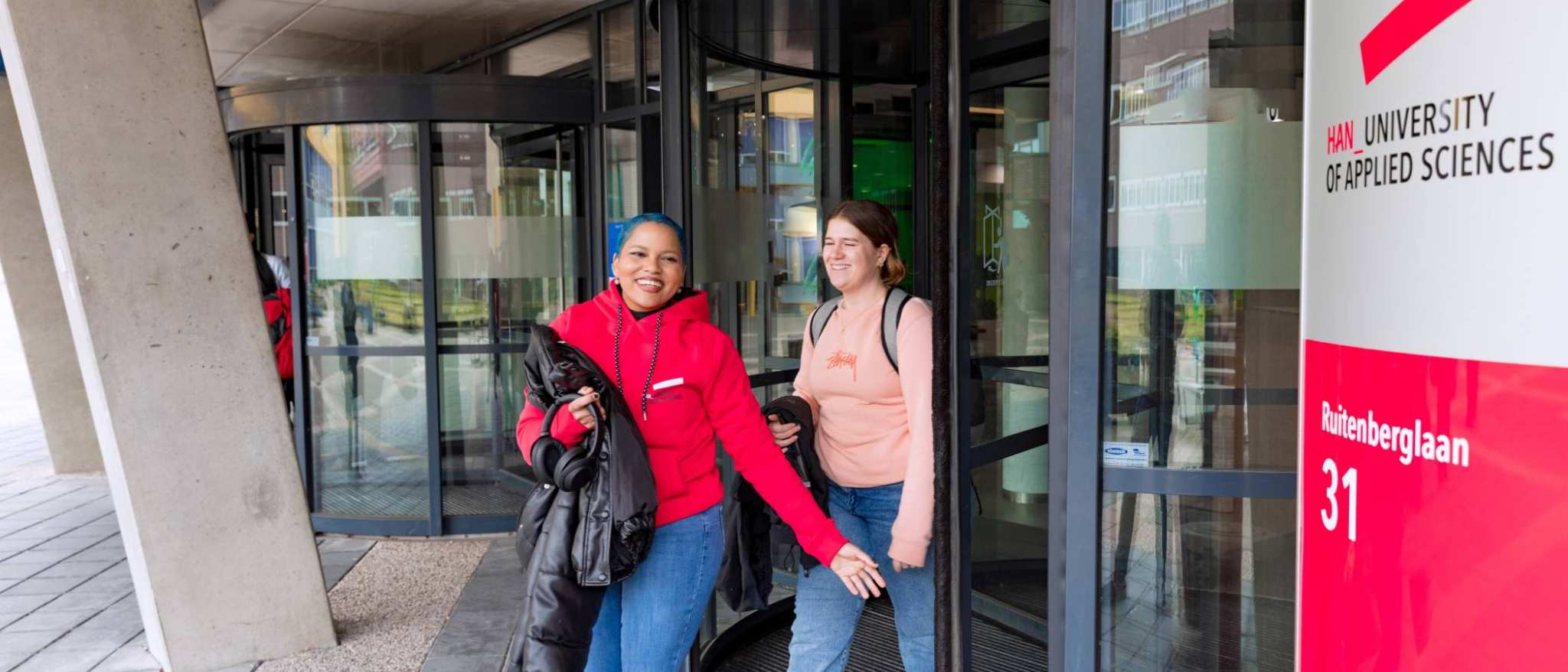International School of Business Exchange Program
Learn how to influence an organization’s behavior. Understand a company’s finance and control. And when international distribution and external logistics come into play. You also learn about control and information systems. Manufacturing processes and ERP. International entrepreneurship. And more!

The program in a nutshell
Your classes and workshops take place Monday through Friday. You get a feel for marketing and tactical skills. Finance and qualitative research. And more! Seminars take place 1-2 times per week. And guest speakers come often to share their experiences and knowhow. And to answer questions. You take a written exam on the subjects halfway through each semester.

Program details
Dutch way of learning
The atmosphere in a Dutch classroom is quite informal and your lecturers are easy to talk to. In fact, at Dutch universities like HAN, you’re seen as a partner in the learning process. Class sizes are small and your lecturers encourage you to actively participate in class. To ask questions. To give your own opinion. They also stimulate you to be creative. And to discover things for yourself.

HAN International Intro
Get a good start to your studies during this week of orientation:
- learn about living in the Netherlands
- become familiar with the campus
- get on board with your exchange program
- make new friends!

What about credits and grading?
At HAN we use the European Credit Transfer and Accumulation System, or ECTS. It’s the standard credit system used in higher education across Europe. How does it work? One credit = 28 hours of study. Think of contact hours. Time spent working on assignments. Preparing for exams.
One semester = 30 credits = 840 hours of study. To earn credits, you need to pass your exams. What counts as a pass? A grade of at least 5.5.

Admission
What are the admission requirements? And how do I apply?
